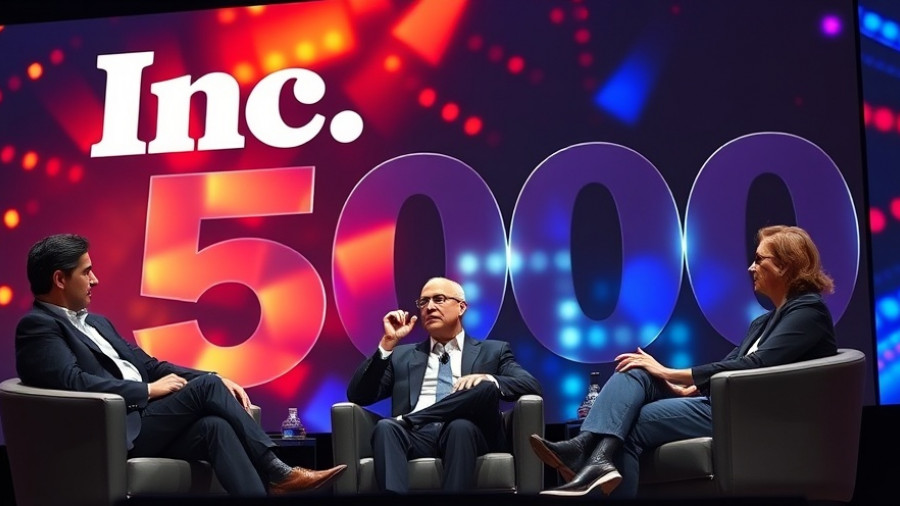
The Threat of Authoritarianism to American Entrepreneurship
In an increasingly polarized political landscape, Doug Emhoff, the former second gentleman of the United States, has boldly addressed the detrimental effects of the Trump administration on small businesses and the economic foundation of the country. At the Inc. 5000 Conference, he voiced concerns that the administration's authoritarian tendencies pose significant risks to intellectual property (IP) protection, which is vital for fostering innovation among entrepreneurs.
During his panel discussion with former Senator Jeff Flake, Emhoff pointed out that a stifling atmosphere, shaped by power grabs and controversial tariff policies, has made it harder for American businesses to thrive. “One of the problems with the erosion of the rule of law is all the pressure being put on it by the administration,” Emhoff stated, underscoring fears that the judicial system’s strength, previously a safeguard for intellectual property rights, is under threat. This erosion could diminish both innovation and competitive advantage in the marketplace.
The Economic Implications of Eroding IP Protections
Currently, the United States is battling substantial losses due to intellectual property theft, with estimates up to $600 billion annually due to crimes predominantly emanating from nations like China. As startups and established companies alike struggle to protect their creations, Emhoff emphasized the absurdity of allowing corporate rivals to thrive through theft—something that undermines the essence of entrepreneurship.
Each year, thousands of trademarks are registered and countless disputes arise, supported by organizations such as the World Intellectual Property Organization. However, recent tariff policies might push businesses to relocate abroad for better operating conditions, thereby leading to diminished economic robustness within the U.S.
Global Relationships and Competitive Edge
During the panel, Flake stressed the importance of maintaining close alliances as a strategic move for American companies competing against China. If the U.S. does not engage with its allies on issues of IP protection and tariffs, it risks isolation in an increasingly aggressive global market. “We desperately need to take on China on these IP issues and some of the other issues, but let’s have our allies join us,” he remarked.
The geopolitical landscape is crucial for small business owners, who rely not only on domestic policies but also on international trade agreements and partnerships to navigate global markets effectively. Emhoff echoed this sentiment, underscoring that the consequence of isolationist policies could lead American innovators to seek opportunities abroad.
Echoes of Authoritarianism in Today's Business Environment
The themes raised by Emhoff and Flake reflect broader mounting fears concerning the shift towards authoritarianism in U.S. politics, as outlined in reports by former intelligence officials warning of an accelerated decline in democratic norms. According to analyses, as executive power expands unchecked, the implications trickle down into the economic sphere, threatening the very fabric of free enterprise.
This decline in values has already encouraged authoritarian leaders around the globe, as noted by the Center for American Progress, which highlights how U.S. actions signal a green light to autocrats in various countries, leading to escalated suppression of civil liberties. Entrepreneurs must remain vigilant to this backdrop—not only to thrive domestically but to be catalysts of change and promoters of democratic principles abroad.
Reflecting on the Future of American Innovation
As the landscape evolves, business operators must recognize their role in safeguarding not only their own interests but also those of a broader democratic society. The shift towards threatening civil liberties and the erosion of the rule of law could very well impact the dynamics of entrepreneurial spirit, with a daunting future looming overhead.
Emhoff’s insights serve as a clarion call for business leaders to actively engage in advocacy for stronger protections for IP and push back against any malfeasance threatening their foundations. As it stands, while individual businesses may bend beneath external pressures, the collective action and resilient spirit of American entrepreneurs can shape a formidable response that upholds the values necessary for a thriving economy.
Ultimately, these discussions highlight the urgent need for vigilance and advocacy among respective industries. American entrepreneurs and business leaders should unite and influence policy positively, ensuring that their voice is a part of the broader movement for democracy and economic innovation.
For business owners seeking guidance on selecting a preferred provider amidst these challenging dynamics, it’s essential to prioritize firms that align with ethical practices and strong democratic values.
 Add Row
Add Row  Add
Add 




Write A Comment